Plant These 5 Things Next to Cucumbers for a Bigger, Healthier Crop
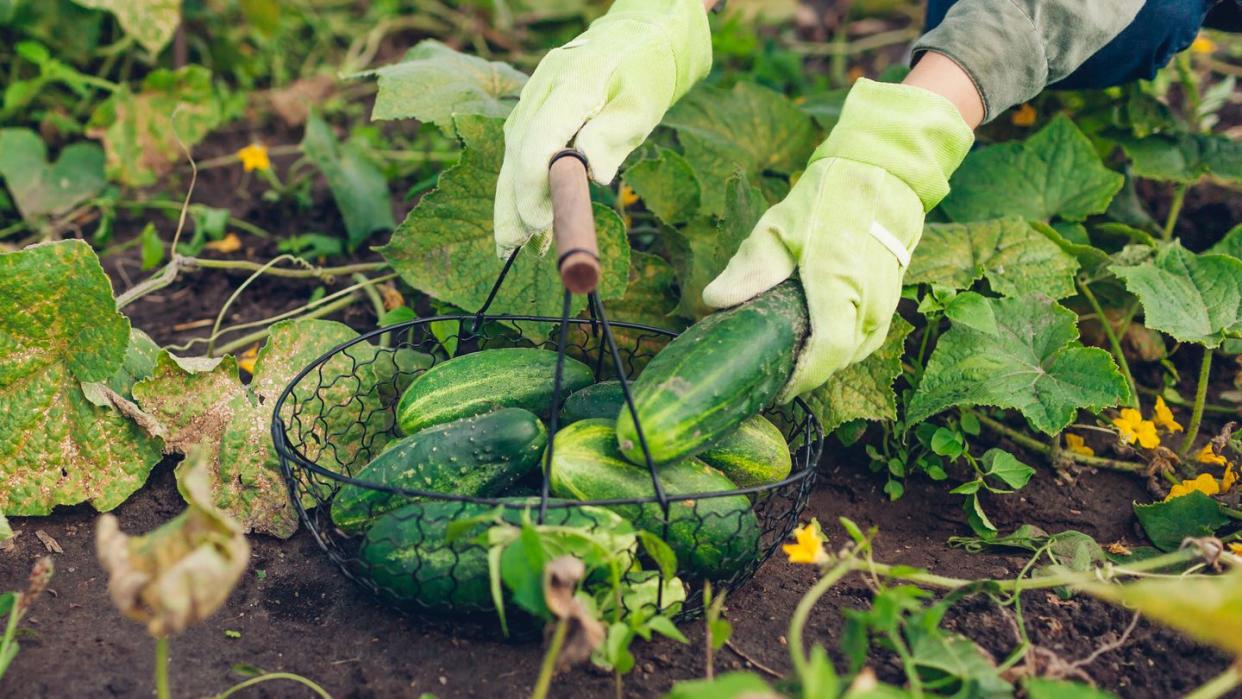
"Hearst Magazines and Yahoo may earn commission or revenue on some items through these links."
There is a common saying in the gardening world that "what grows together, goes together." While that is most certainly true taste-wise (think: tomatoes with basil or corn with zucchini), there are benefits far beyond the culinary. Growing certain plants alongside one another is incredibly beneficial to the overall health of your garden. This method, called companion planting, is the practice of cultivating plants in proximity to one another to enhance growth, increase yields, and repel pests.
Native American tribes such as the Iroquois and Cherokee employed this method, known as the "Three Sisters" when planting corn, beans and squash—varieties that supported and nurtured one another naturally. As Trace Barnett, host of Alabama Public Television’s Garden Party shares, “Companion planting serves as nature's intricate blueprint for enhancing garden vitality. By strategically pairing plants, nutrients are recycled, pests are deterred, and pollinators are enticed, resulting in a thriving ecosystem. In the realm of cucumbers, this symbiotic relationship extends beyond mere coexistence, fostering a garden symphony where each plant plays a crucial role.”
When choosing companion plants—also referred to as ‘plant guilds’—there are a number of factors to consider: nutrient needs, different rates of growth, and sunlight requirements. You won’t want to plant something towering that will crowd or shade a low-growing specimen. And you’ll want to avoid installing plants that compete with one another for a soil’s nutrients. Here, our official guide to the best companion plants for cucumbers.
Legumes
Peas, beans and lentils make fantastic companions to cucumbers as they fix nitrogen levels in the soil and enrich it with essential nutrients for growth. As legumes mature, their sprawling vines create natural dappled shade that conserves moisture and protects the soil from erosion—a win-win for cukes.
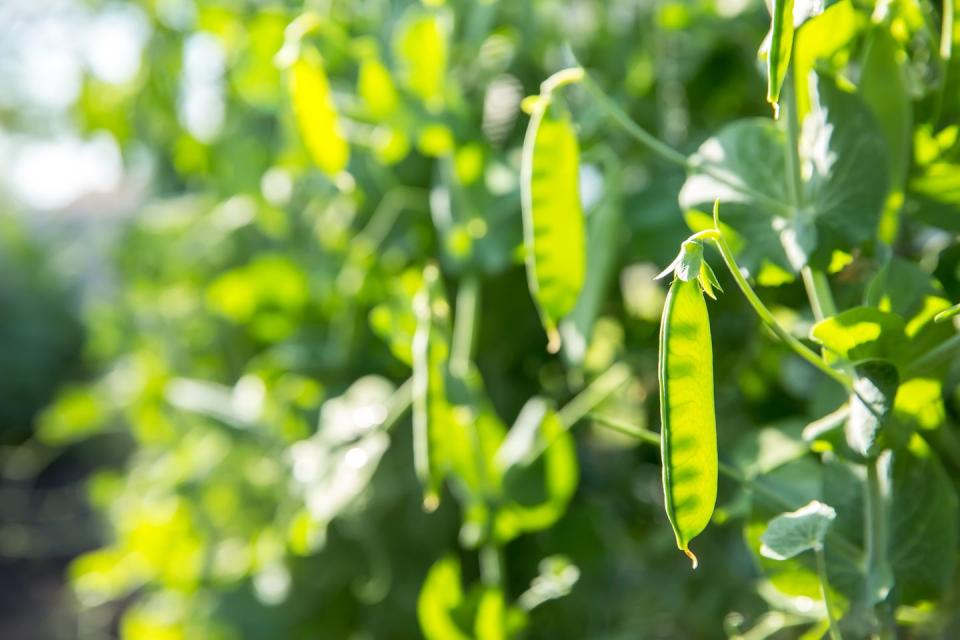
Corn
As part of the Three Sisters farming method, corn acts as a natural trellis for cucumbers to climb, maximizing space utilization. The cucumbers’ broad leaves help to suppress weeds and retain soil moisture, so corn also gets to reap the benefits.
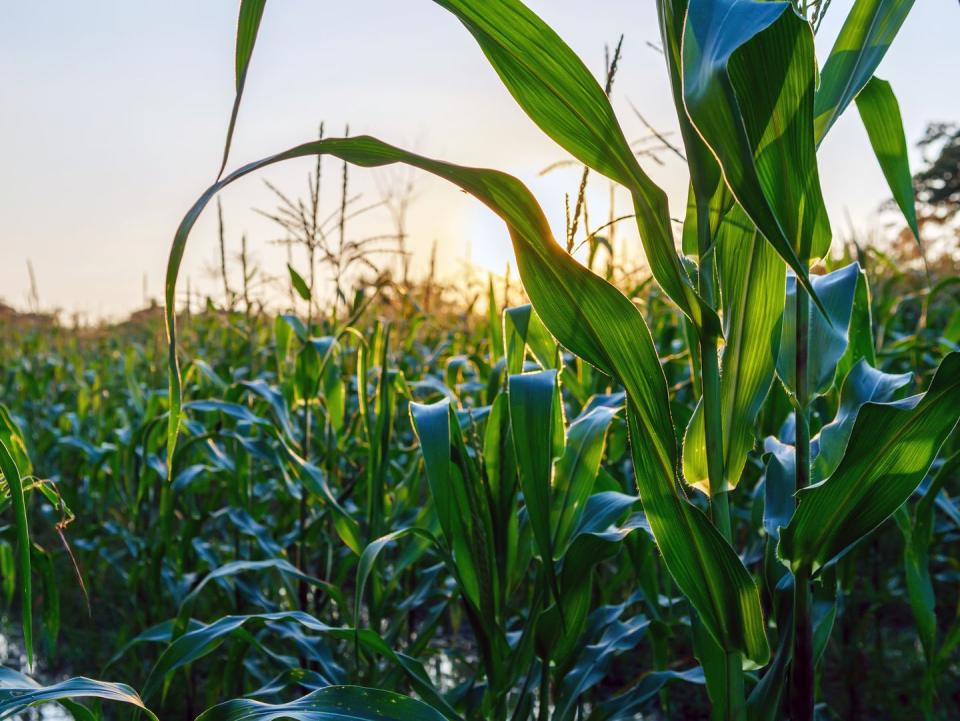
Radishes
Planting radishes alongside cucumbers can help repel pesky cucumber beetles that can wreak havoc on your backyard crop. Radishes also mature quickly and their root system breaks up compacted soil with its growth. Other root vegetables such as carrots, garlic, onions, and beets will provide the same benefits.
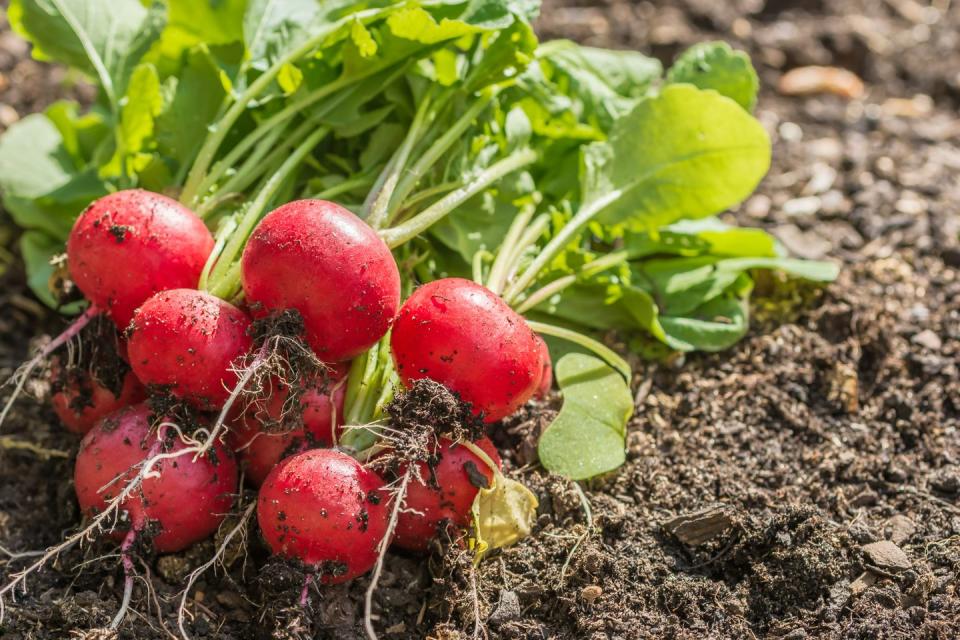
Flowers
Certain flowers—like nasturtiums, marigolds and sunflowers—are made to be BFFs with your cucumbers. Aside from the happy visual appeal of these specimens, these blooms have beneficial properties. The nasturtium and marigold scents act as natural deterrents to pests like aphids, cucumber beetles and whiteflies, while leggy sunflowers serve as natural trellises for cukes to climb. Plus, all of these flowers attract beneficial pollinators to your garden, enhancing fruit set and yield.
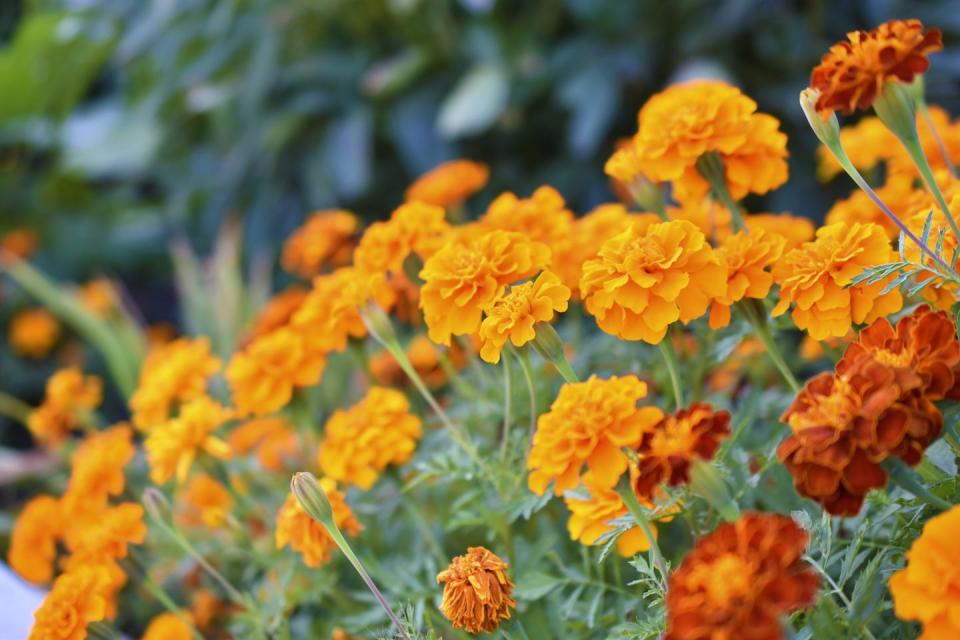
Dill
Known to attract predatory insects that help rid your garden of pests, dill is quite useful when planted adjacent to cucumbers. Harvest them at the same time to enjoy that adage of what grows together, goes together—we’re looking at you, tzatziki. Oregano works well here too.
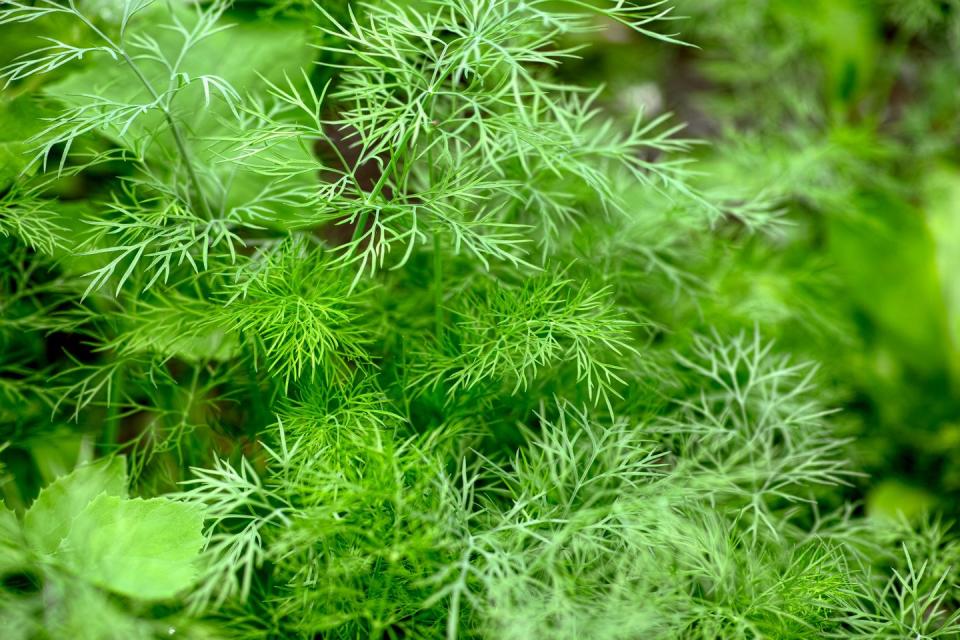
What to Avoid Planting with Cucumbers
Potatoes: These tubers are heavy feeders that will likely compete with your cucumbers for nutrients and moisture. They can also be prone to blight, which may spread to your cucumbers.
Sage and Mint: These aromatic herbs may stunt the growth of cucumbers and impart a strong fragrance that affects the taste. Mint, when not contained, has a propensity to run amok in a garden and can choke out other plant varieties while stealing nutrients for growth.
Melons: In addition to taking up valuable growing space that cucumbers require, the heady scent of melons is a natural attractant to insects that feed on cucumbers.
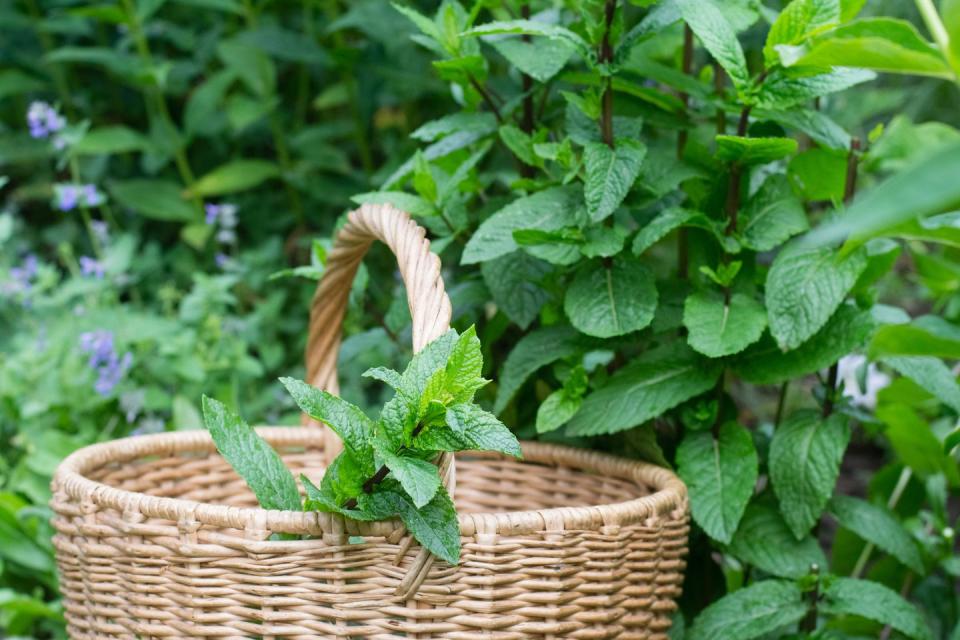
You Might Also Like

